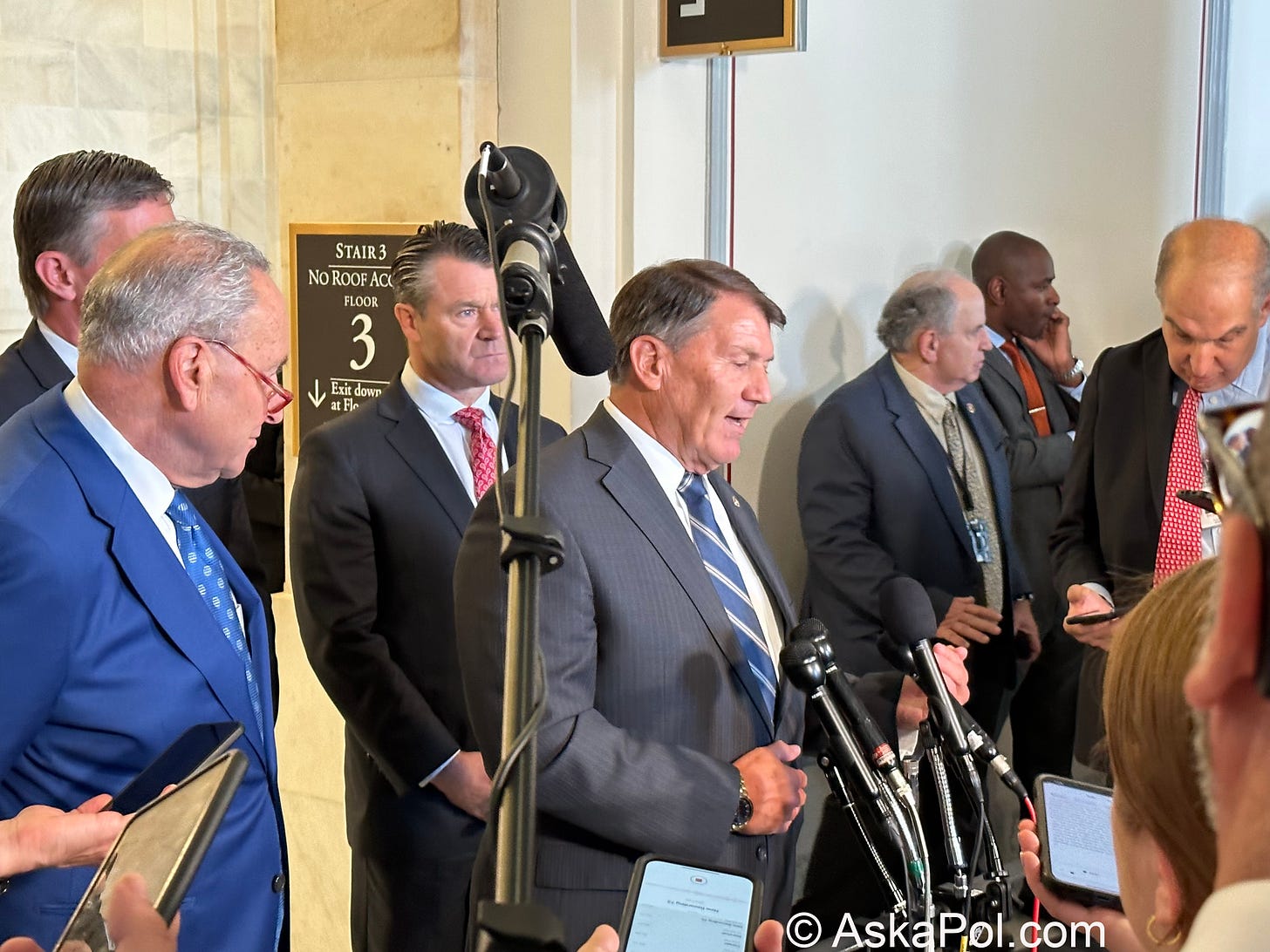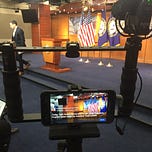
Who?
Sen. Mike Rounds (R-SD)
LISTEN: Laslo & Rounds
Ask a Pol asks:
When it specifically comes to deepfakes in the 2024 election — anything actionable?
Key Rounds:
“The thing if we can draw attention to the American public that you’ve got countries outside of the United States that really are trying to influence the elections, and we can use AI to identify what they are and so can the platforms,” Sen. Rounds exclusively told Ask a Pol. “You’ve got to use AI to do it, to detect it in the first place as early as possible.”
Caught our ear:
“But the second piece is there’s got to be more attention brought to the American public that a huge amount of the information that is being presented right now on social media is intended to influence them with misinformation. And that’s just something that we just have to keep pounding on with the American public,” Rounds says. “They’ve got to discern what is accurate and what might actually be a deepfake.”
Below find a rough transcript of Ask a Pol’s exclusive interview with Sen. Mike Rounds (R-SD), slightly edited for clarity.
TRANSCRIPT: Sen. Mike Rounds
Matt Laslo: “You had those AI forums, one of your colleagues said they were, y’know, kind of hosted by Big Tech. ‘Cause his accusation in that he was saying it’s hard to regulate…”
ICYMI — Sen. Josh Hawley rips bipartisan AI forums
Mike Rounds: “Not hosted, but, y’know, look, we had players that were making a difference in AI. They wanted to share it. And we didn’t limit it to just one type of advisory group. We invited lots of different types that were involved in the advisory groups. So, for us, we just wanted as much information as we can get from all different sources, and these are the sources. And I don’t wanna do things in ignorance, I wanna do things with as much information as possible, and they were providing it. And in some cases, they actually provided, y’know, information from differing perspectives. That was healthy to hear the difference, and we could then flesh out.”
ML: “Do you think, when it specifically comes to deepfakes in the 2024 election, is anything actionable? I know there’s a couple of competing bills, but we’re now in the midst of an election.”
MR: “You know, we are except, accepting. the thing is, if we can draw attention to the American public that you’ve got countries outside of the United States that really are trying to influence the elections, and we can use AI to identify what they are and so can the platforms. If there’s a way that there’s a comfort level in identifying when you’ve got adversaries that are actually putting misinformation out through, y’know, different sources, but on social media primarily, we can go long ways towards correcting some of it. You’ve got to use AI to do it, to detect it in the first place as early as possible. But the second piece is there’s got to be more attention brought to the American public that a huge amount of the information that is being presented right now on social media is intended to influence them with misinformation. And that’s just something that we just have to keep pounding on with the American public. They’ve got to discern what is accurate and what might actually be a deepfake.”
ML: “At this point, instead of a bill addressing it, would it be easier to put in extra funding for DHS [Department of Homeland Security] or…”
MR: “Yeah. It’s a part of it. It won’t fix it. But because the platforms themselves have to have a comfort level that there is a recognition that restricting what you know to be false information is defensible. And I think that’s where the challenge is going to be. And it’s the reason why we want, like, the Judiciary Committee to really have a say in it, so that we actually use the expertise they’ve got there to help craft that type of legislation.”
Another reporter cuts in with a 2024 election question about Sen. Tim Scott (R-SC).
Content posted at AskaPol.com is copyrighted. Use our original content to move the story forward. And, please, link to us.


















Share this post